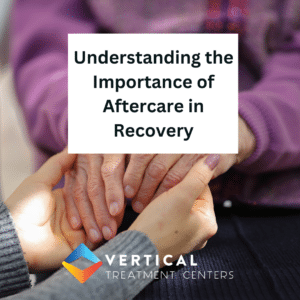
Understanding the Importance of Aftercare in Recovery
Completing a drug or alcohol addiction treatment program is a significant achievement, but recovery is an ongoing journey that requires continued care and support. Aftercare is a vital component of addiction treatment that helps individuals sustain their sobriety and prevent relapse. In this blog post, we will explore the importance of aftercare and its various components for supporting individuals in addiction recovery.
What is Aftercare: Understanding the Basics
Aftercare refers to the ongoing support and services provided to individuals after they have completed a primary addiction treatment program. Aftercare can include various services, such as follow-up care, counseling, support groups, and other recovery resources. The goal of aftercare is to help individuals maintain their recovery, establish healthy habits and routines, and prevent relapse.
The Benefits of Aftercare: Enhanced Recovery Outcomes
Aftercare plays a critical role in supporting individuals on their path to long-term recovery, offering a range of benefits that enhance treatment outcomes. Research indicates that aftercare can significantly reduce the risk of relapse and improve overall recovery outcomes. Aftercare provides the support, guidance, and resources needed to navigate the challenges of early recovery successfully.
Components of Aftercare: An Overview
Aftercare includes various components designed to support individuals in maintaining their sobriety. These components may include:
- Continuing Care: This involves ongoing counseling or therapy sessions, medication-assisted treatment, or other medical services to monitor and address any ongoing addiction issues.
- Support Groups: Support groups like Alcoholics Anonymous or Narcotics Anonymous provide individuals with a safe and supportive community where they can connect with others facing similar challenges.
- Sober Living or Transitional Housing: Sober living or transitional housing provides individuals with a safe, drug-free environment and community support during the transition from treatment to independent living.
- Recovery Coaching: Recovery coaches provide individuals with personalized guidance and support in navigating early recovery and addressing any issues that may arise.
- Employment or Education Resources: Aftercare programs may offer resources to help individuals find employment or education opportunities to build a secure and fulfilling future.
Personalizing Aftercare: Tailoring Support to Individual Needs
Aftercare should be personalized to meet an individual’s specific needs and circumstances. Aftercare providers should work with individuals to identify their unique needs, strengths, and challenges and develop a tailored aftercare plan that addresses those needs. A personalized aftercare plan ensures that individuals receive the support, resources, and services needed to sustain their recovery.
Conclusion
Aftercare is an essential component of addiction treatment, providing ongoing support, guidance, and resources to help individuals maintain their sobriety and prevent relapse. Aftercare components like continuing care, support groups, sober living or transitional housing, recovery coaching, and employment or education resources are tailored to meet individual needs. By personalizing aftercare and addressing unique challenges, individuals can establish healthy habits and routines, stay connected to supportive communities, and achieve lasting recovery.